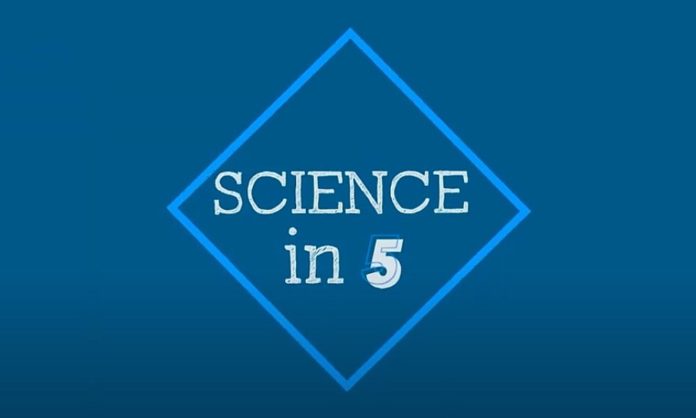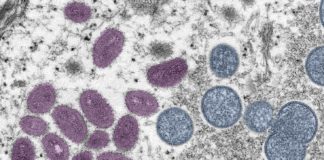
Vismita Gupta-Smith
Monkeypox, which are the communities that are more at risk and why?
And what can we do to address the stigma and support these communities more?
Hello and welcome to Science in 5. I am Vismita Gupta-Smith.
We are talking to Andy Seale today. Welcome, Andy. Let’s start, Andy, with this new outbreak. It seems that certain communities are more affected than others. Which are these communities?
Andy Seale
So we’re seeing nearly 70 countries affected by this outbreak. In previously affected countries, which are largely in West Africa, we’re seeing communities of diverse backgrounds and ages.
And, in newly affected countries, we’re seeing cases that are largely focused on men. And when we look at those cases, we’re noticing that actually it’s men who have sex with men. So men who identify as gay, bisexual or who have sex with other men, who have perhaps reported
through sexual health clinics or as part of efforts to reach cases through contact tracing. There have been some cases reported in women and children, but these have been very limited.
And so we have to respond to the data. We have to really look at targeting our resources where we know the infections are happening. And at the moment, it’s really happening within this particular group.
But remember, anyone can get infected if they’re in contact with the virus. And so for the moment, while we’re concentrating our efforts on gay, bisexual and other men who have sex with men, we are also keeping a
Vismita Gupta-Smith
Andy, speak to us about why this particular community seems to be affected.
Andy Seale
There are multiple modes of transmission for monkeypox, including skin to skin contact, kissing or touching infected materials like bed linen.
What we know and what the evidence tells us is that sexual networks within communities of gay, bisexual and other men who have sex with men have played a role in transmitting the virus in the context of this outbreak.
So some gay and bisexual men are connected to these dynamic sexual networks that connect cities and countries.
And in the early days of the outbreak, international travel seemed to play a significant role in further amplification of this outbreak.
This community is active in managing its health. We know that many gay men actively seek sexual health services, for example, many of them will take HIV medications as pre-exposure prophylaxis to prevent HIV infection. And of course, some men are also HIV positive. So these men are in constant contact with health services. And through that, that regular contact and access to services gives them the opportunity to check up on any symptoms or any health issues that they might be concerned about. So this has probably also played a role in the identification of cases within this community.
Vismita Gupta-Smith
Andy, speak to us about stigma and the damage that it can do and also about how we can all support these communities.
Andy Seale
Well, stigma essentially stops people from accessing services. It helps no one.
So we need to really be robust in addressing and identifying stigma and discrimination when we understand that it’s happening.
And the best way to do that is working closely with these communities.
Communities of gay, bisexual men and other men who have sex with men and providing tremendous leadership in the context of this outbreak. We’re seeing great advocacy around access to testing, access to vaccines, and in the promotion of prevention messages to stop the further spread of monkeypox. This is the kind of work that really helps contain outbreaks like this one. And we need to further work with these communities, support them with their own fundraising so that this work is properly resourced and continue to make sure they’re at the table when decisions are taken not only about fighting stigma, but around access issues as well, including vaccine access and testing.
Having monkeypox can be distressing and people need support. We mustn’t blame or stigmatize anybody for either being exposed to monkeypox. Perhaps they’ve been identified through contact tracing or indeed for having the virus itself.
We need to provide support to people who are in this situation. Hopefully, for most, it will be a short lived, mild infection. But we know for some people it can be very painful and they may require hospital care.
There are practical things that we can do not only to fight the stigma, but also to offer practical support, including with shopping if they’re isolating, for example, and offering people a friendly shoulder if they need to talk about their experiences.
There’s a lot of misinformation about monkeypox, much of it fueled by homophobia and racism. We have to challenge this. We must work more closely with the communities affected. Really inspired by their leadership, their advocacy around access to testing, to vaccines and to services in general.
And really strengthen those links between public health agencies
and communities of gay, bisexual and other men who have sex with men. Fighting stigma and getting this response right come hand in hand. And it’s through partnership with communities that’s the way to go.
Vismita Gupta-Smith
Thank you, Andy.
You can access more information about monkeypox on our website: who.int
Until next time then, stay safe, stay healthy and stick with science.







